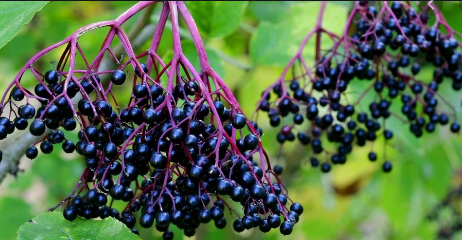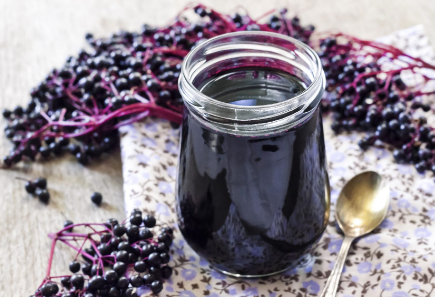Health & Wellness |The Power Benefits of Elderberry
- Buttafleye Ministry

- Feb 4, 2021
- 3 min read
Updated: Jun 10, 2021
Packed with antioxidants, elderberries are a low-calorie food containing 73 calories. The Powerful Benefits of Elderberry

Traditionally used by Egyptians and Native Americans to treat infections, improve their complexion, and heal their burns, elderberry is and has always been one of the most commonly used medicinal plants in the world. Historically, the flowers and leaves were used for pain relief, inflammation, swelling, and to stimulate the production of urine while the bark was used as a diuretic, laxative, and to induce vomiting.
Today there are a ton of many reported and scientifically proven benefits of elderberries. They fight cold and flu symptoms, support heart health, fight infections, fight inflammation, fights harmful bacteria, supports and boost the immune system, lessen stress, and much more. Many experts recommend elderberry to help prevent and ease cold and flu symptoms and it has also been used as a treatment for:
Epilepsy
Joint and Muscle Pain
Headaches
Constipation
Fever
Kidney Problems
Minor Skin Conditions
HIV and AIDS
In folk medicine, the dried berries or juice is used to treat sciatica, dental pain, nerve pain, heart pain, and headaches.
Elderberries are High in Nutrients Packed with antioxidants, elderberries are a low-calorie food containing 73 calories, 18.4 grams of carbs, and less than one gram of fat and protein per every 100 grams. They are high in vitamin C containing 6 - 35 mg of vitamin C per 100 grams which accounts for up to 60% of the recommended daily intake. They are high in dietary fiber containing 7 grams of fiber per 100 grams which is also over the recommended daily intake. They are a good source of phenolic acids that help reduce damage from oxidative stress, flavonols, and anthocyanins. The exact nutritional composition of elderberries depends on the plant, ripeness, and environmental and climatic conditions, therefore, servings can vary in nutrition. May Improve Cold and Flu Symptoms Black elderberry extracts and flower infusions have been shown to reduce the severity and length of the flu. Commercial preparations of elderberry for the treatment of colds come in various forms including gummies, capsules, lozenges, liquids, and syrups. One study of 60 participants with the flu found that those who took 15 mL of elderberry syrup four times per day showed symptom improvement in two to four days whereas the remaining participants who did not take the syrup took seven to eight days to improve. High in Antioxidants Reactive molecules accumulate in the body after they are released during normal metabolism. This can cause oxidative stress and lead to the development of diseases like type 2 diabetes and cancer. Antioxidants are natural components of foods that are able to remove these reactive molecules and research suggests that consuming high amounts of antioxidants may help prevent chronic disease. Good For Heart Health Studies have shown that elderberries may reduce the level of fat in the blood and decrease cholesterol. Containing high amounts of anthocyanins, this gives elderberries the benefits of reducing the risk of heart disease. Elderberry can also increase insulin secretion and improve blood sugar levels. Given that type 2 diabetes is a major risk factor for heart and vascular disease, elderberries can help prevent these conditions. Summary With elderberries being an excellent source of vitamin C and fiber, amongst other benefits, it is definitely worth further studying to build upon the current evidence supporting its use in reducing the length of colds and flu and even preventing it. Taking care of yourself should always be a top priority which includes a healthy diet, adequate sleep, and stress management but adding elderberries, or elderberry syrup to your list of staple ingredients in your household wouldn’t do any harm either.

Source(s): 1: https://www.ncbi.nlm.nih.gov/pubmed/24409980 2: https://www.ema.europa.eu/en/documents/herbal-report/final-assessment-report-sambucus-nigra-l-fructus_en.pdf 3: https://nutritiondata.self.com/facts/fruits-and-fruit-juices/1883/2 4: https://www.sciencedirect.com/science/article/pii/S1756464614002400 5: https://www.ncbi.nlm.nih.gov/pubmed/22129334 6: https://www.ncbi.nlm.nih.gov/pubmed/28198157 7: https://www.ncbi.nlm.nih.gov/pubmed/15080016 8: https://www.ncbi.nlm.nih.gov/pubmed/15462130 9: https://onlinelibrary.wiley.com/doi/abs/10.1002/ptr.2729





Comments